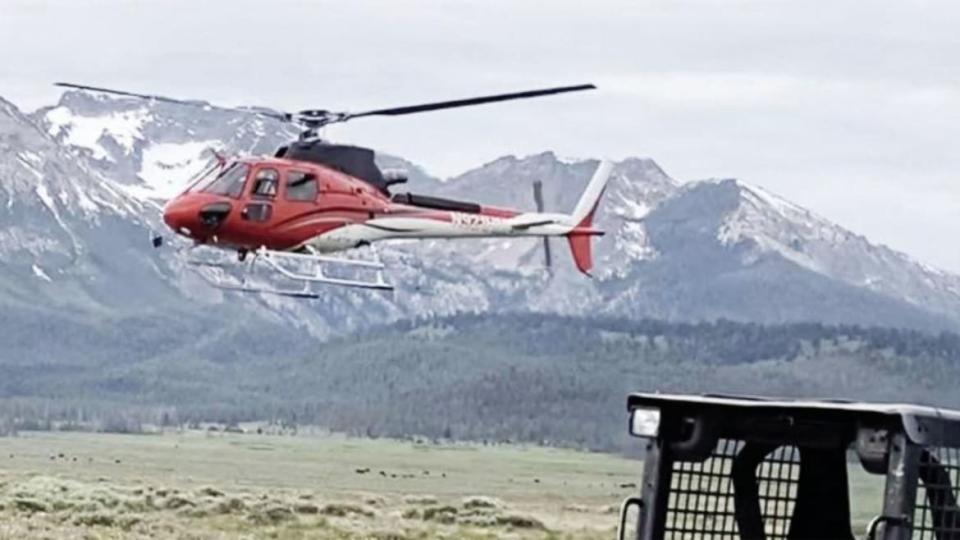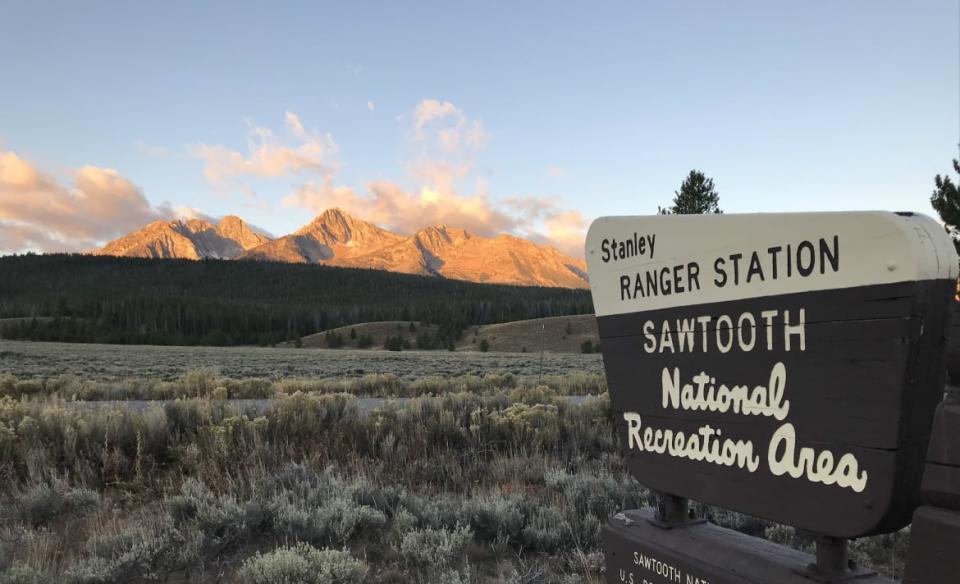Money Man Twists the Knife in Land Fight With Idaho Neighbors

For months, residents of a tiny community in Central Idaho were at war with a rich neighbor, who was landing private planes and a chopper on his property inside federally regulated land. They organized, they wrote angry letters, and they gave themselves a name, Friends of the SNRA, or Sawtooth National Recreation Area.
Then: an underhanded twist.
Michael Boren, the wealthy adversary, co-opted the name for himself, the group alleges. His affiliates, including his spokesman and son-in-law, helped register “Friends of the SNRA” with the Idaho Secretary of State’s office. Officially speaking, Boren is now the protected land’s biggest champion and ally—and the activists were forced to rebrand.
Boren’s spokesman, Todd Cranney, acknowledges as much. “We’re like, ‘Okay, well, who’s the Friends of the SNRA? We’re friends of the SNRA as well,’” he told The Daily Beast. “Looking it up, there was no legal entity… So we thought, ‘Hey, that’s a great idea.’”
The petty drama has only worsened local tensions. “It just shows the legal hoops that he’s going through,” says Andy Munter, a nearby resident and member of the newly rebranded Advocates for the Sawtooth NRA. “It made us step up and realize that we probably had to get a little more serious.”
Boren’s opponents say his flights are disruptive and that he misled authorities over his plans to build the airstrip, initially claiming that he was just doing agricultural work. They want the government to shut him down.
The Superrich Bought Up This Idaho Town and Regular Folks Now May Have to Live in Tents
For the activists, it’s also a fight against the creeping wealth that has overtaken many parts of the Mountain West—a trend accelerated by the pandemic, as urbanites started working remotely from luxury rural outposts. Local resident Stewart Wilder says Boren’s ranch is a case study in whether the rich will get to bend or disregard rules: “What happens with this airstrip I think is critical because it unfortunately sets a bad precedent.”
Currently, Boren is winning the battle. In May, county commissioners gave him a conditional use permit, as the Idaho Statesman reported at the time. Some locals say the commission failed to consider numerous violations. An appeals hearing is scheduled for Wednesday.
“More than 400 people have told Custer County that Boren’s private airport and frequent flights have negatively impacted his neighbors and recreational users of the Sawtooth Wilderness,” the Advocates for The Sawtooth NRA wrote in a statement earlier this month. “This begs the question as to why a multimillionaire with political influence like Boren receives different treatment than his law-abiding neighbors.”

Activists say Michael Boren has been landing private planes and a chopper on his property inside federally regulated land.
Boren’s conflict has its roots in the 1970s, when residents of the Sawtooth Valley sought a way to protect the region. They considered turning it into a national park, then scrapped the idea, concerned that it would attract too many tourists and create extreme bureaucracy for homeowners.
Instead, the government designated the territory a national recreation area. Part of the protective measures included placing easements on dozens of properties, which restricted a wide array of development. “It’s been for the better part of 50 years a very successful program,” says Doug Obletz, who bought a property in 2014 with an easement on it.
Boren’s land also carries restrictions. At the center of his dispute are questions about how much he cares.
All parties agree on part of the history. In 2016, Boren bought his ranch. He knew the area well, having attended high school in Custer County before making a fortune in tech and investing. A former hedge funder, Boren cofounded a software firm in Boise, Clearwater Analytics, which reportedly considered going public this year with a valuation of above $4 billion. (He is no longer involved with the company.)
Soon after buying the ranch, Boren began flattening a slice of pasture. Local authorities were under the impression that he was making irrigation enhancements.
“Your assertions to the U.S. Forest Service, Army Corps of Engineers, and National Marine Fisheries Service (NOAA) were that the leveling of a site approximately 40 ft x 2500 ft was merely an agricultural improvement and by no means an airstrip,” the U.S. Forest Service’s area ranger, Kirk Flannigan, wrote to Boren this month.
Instead Boren, a registered pilot, allegedly landed multiple planes on the site, built a hangar, and installed fuel tanks capable of holding 2,000 gallons. Some neighbors say that he was known to land aircraft numerous times per week.
“This summer he’s been flying less,” says resident Andy Munter. “I don’t know if he’s just on his best behavior.”

Boren’s public image has been recuperating from an unrelated incident in 2020, when he allegedly harassed crews building a public trail on his brother’s property by flying his chopper close to the ground. The Department of Justice filed for an injunction against him but later withdrew the request, saying he had agreed to steer clear of the area. Cranney says that “the FAA cleared him of any wrongdoing and the matter is closed.”
As for the airstrip, Cranney insists that Boren has not violated any regulations, has been fully transparent with authorities, and has taken just a few flights per week. “The Forest Service has confirmed that he is in compliance with the Scenic Easement,” he told The Daily Beast on Monday.
Two hours earlier, The Daily Beast spoke with the U.S. Forest Service’s Flannigan, who offered a different set of facts. “We shared with the Custer County commissioners that he is currently not in compliance with the scenic easement,” Flannigan said. (Boren’s representative says they disagree with the ranger’s interpretation of approval requirements.)
Still, Flannigan wrote this month that Boren’s development has not yet “risen to the level where I believe it is materially detracting or substantially impairing the values of the Sawtooth National Recreation Area.” Any future upgrades, he noted, might change that.
As he prepares for the appeals hearing on Wednesday, Boren is seeking authorization to label his airstrip an official landing spot for emergency crews.
He says he just wants to help search-and-rescue efforts. Activists say it’s a ploy to further cement the airstrip’s future. (Flannigan, for his part, agrees that it’s not necessary. “We have always found locations on the national forest to land helicopters to rescue individuals, 100 percent of the time,” he says.)
Either way, Boren has no plans to modify his activity—no matter whether that permit comes through. “If they don’t approve this, then [the airstrip] just won’t be used for emergency use, and the Borens will continue to be able to use it,” Cranney says. “That’s going to remain their right regardless of what happens.”
In other words: the fight will go on.
Got a tip? Send it to The Daily Beast here
Get our top stories in your inbox every day. Sign up now!
Daily Beast Membership: Beast Inside goes deeper on the stories that matter to you. Learn more.

 money
money 